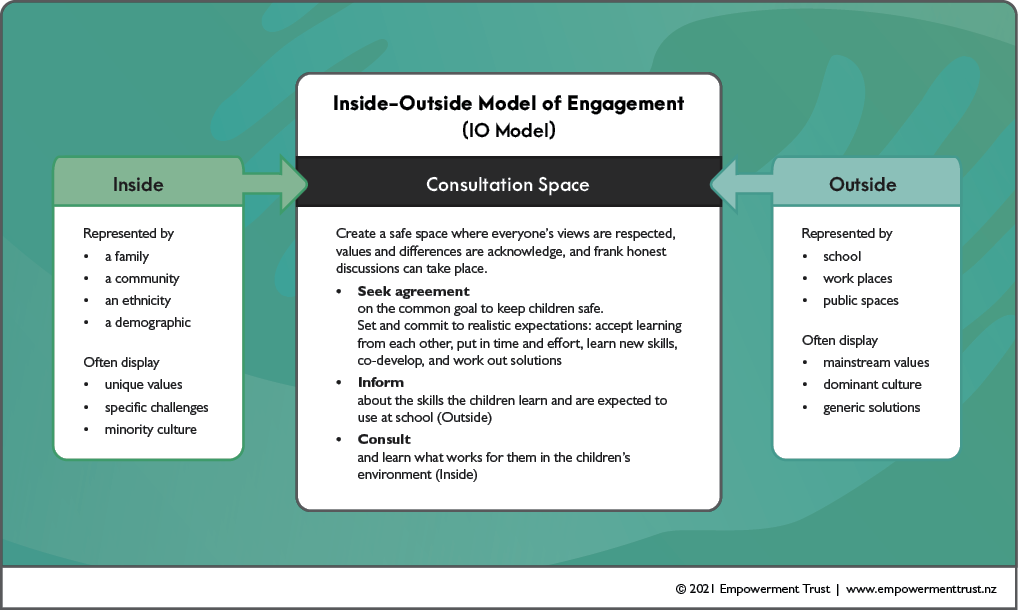Inside-Outside Model of Engagement
Supporting Culturally Responsive Facilitation and Community Consultation/Mobilisation
Why
Strategies, actions and words that are desirable and useful at school, work and public spaces (“Outside”) may clash with values and traditions of families, communities or cultures (“Inside”).
For example,
- “Outside” (i.e. at school) we want participants to speak up, while
- “Inside” (i.e. at home/in their community) it may put a child at risk if they speak up.
Creating a consultation space using the Kidpower Inside-Outside Model™ allows us to acknowledge and appreciate differences, empower families and communities to teach their children what works in their environment and to foster mutual learning.
This approach lowers barriers that family values and/or cultural values may create.
How
- Seek Agreement on the common goal to keep children safe.
- Inform about the skills the children are taught to use at school (Outside)
- Consult learn what works for them in their own environment (Inside)

At governance and administration level, this includes consultation with main leaders of communities of ethnicity, faith or interest and with families.
In the classroom, we recommend you
- Observe differences without judging
- Seek agreement and support of families and communities on the goal of keeping children safe with ministers, marae, organisers of cultural and sports events etc.
- Inform them about what you teach and ask them what they expect their children to do to be safe in their whānau (i.e. when there is no adult around, when they had a scary incident, or when they see something that is not okay)
- Work with people your participants will accept as role models.
- Study the solutions that are working well for stopping violence and abuse within a culture.
- Meet people where they are instead of expecting them to come to where you are.
- Invite ideas from participants about what will best meet their needs. Treat participants’ cultural (and other) knowledge as a valuable ‘resource’.
- Discuss possible answers with participants encountering objections from whānau and friends.
- Become conscious of your own values (particularly when you are confronted with behaviours, actions, and opinions you don’t understand or that may annoy you)
- Learn about differing cultural values like Family centeredness, collective outcomes, strong faith, gender-specific roles and separation/taboos, hierarchy by age and/or position etc.
- Be patient with yourself and others – it usually takes a while to get an idea of your own and other people’s norms and values. It’s not unlike learning another language.
Note: It is important for everyone living in NZ to understand the basics of consent and healthy relationships, including intimate relationships, in order to obey the law.
For more in-depth support and resources, visit:






 Copyright © 2025 Empowerment Trust | Site by
Copyright © 2025 Empowerment Trust | Site by